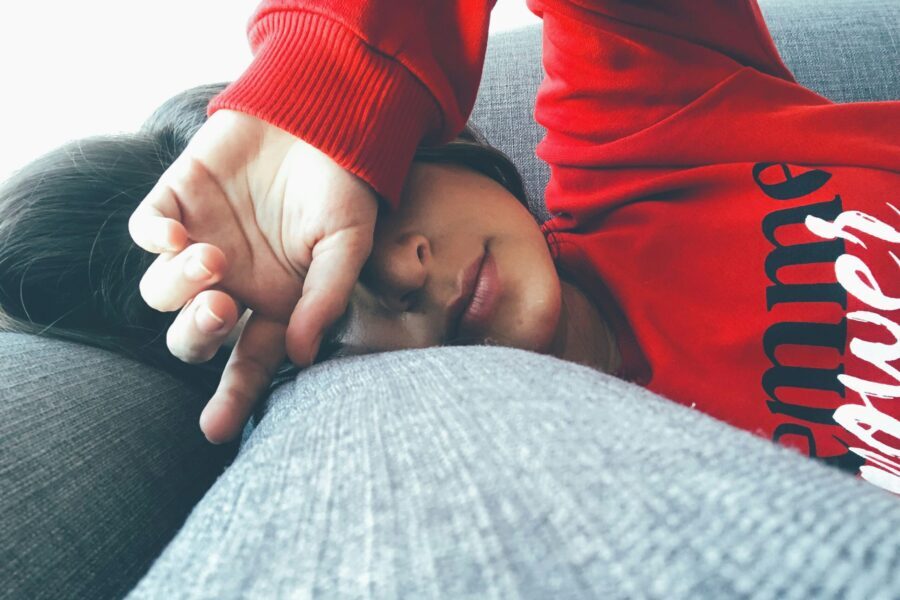The holiday season is known for joy and celebration, but for many, it also brings heightened stress, anxiety, and loneliness.
Research reveals that 51% of women and 35% of men report increased stress during this period, with one in four people experiencing a decline in mental health, according to a survey from the mental health charity, Mind. HR leaders have an opportunity to implement meaningful support strategies that help employees navigate this high-stress season more easily.
This article delves into why festive fatigue occurs and explores strategies for HR to reduce seasonal stress, building a more resilient workplace culture.
Understanding Festive Fatigue
What is Festive Fatigue?
“Festive Fatigue” refers to the stress and burnout experienced during the holiday season. For some, this time of year exacerbates existing pressures, bringing unique challenges that impact both personal and professional lives. Nearly 60% of people report experiencing holiday-related anxiety, panic attacks, or sleep disruptions. The added pressure of balancing family and social obligations, seasonal spending, and increased work demands creates a mix of stress that can negatively affect productivity, engagement, and overall wellbeing.
For employees with pre-existing mental health conditions, the holiday period can worsen symptoms, which not only affects their personal health but also workplace performance. This strain can contribute to presenteeism, absenteeism and eventually, burnout.
The pressure points of the festive season
During the holiday season, several stressors tend to increase:
- Social and family pressures: Expectations for togetherness during the holidays can lead to increased feelings of loneliness, especially for those with strained relationships or who feel isolated. In fact, 53% of men report feeling lonely even when social demands increase.
- Financial strain: Holiday expenses add financial pressure, with 41% of individuals feeling burdened by costs related to gifts, travel, and social events, as per a recent survey from the UK’s Mental Health Foundation.
- Increased workload: Many employees face year-end deadlines or need to cover for colleagues on holiday. This additional workload can amplify burnout and fatigue as employees try to meet both professional and personal obligations.
Strategies for supporting employee wellbeing during the holidays
HR leaders can play an impactful role in reducing festive fatigue by implementing supportive practices. Here are some ways to make a difference:
- Encourage flexible work schedules and PTO
Offering flexibility where possible helps employees better manage both work and holiday commitments. Promoting paid time off (PTO) usage can also be effective. A 2023 survey from the Society for Human Resource Management (SHRM) found that encouraging time off helps reduce burnout, particularly during high-stress periods. - Provide mental health resources and support
Having accessible mental health resources is crucial. Employee assistance programs (EAPs) with counselling options, as well as mental health workshops, allow employees to access support when needed. Regular check-ins from managers can also normalise discussions around mental health and foster an environment where employees feel comfortable seeking help. - Offer financial wellbeing resources
Financial strain ranks as a top holiday stressor. Providing employees with resources like financial wellness webinars or budgeting workshops can reduce money-related anxiety. Organisations such as the Financial Wellness Institute have shown that providing such resources improves overall employee satisfaction and mental wellbeing. - Foster a supportive and inclusive culture
Rather than mandatory holiday gatherings, consider low-pressure, optional events. Emphasise voluntary participation to avoid adding social stress. Creating a culture of inclusivity during the holidays is crucial in making all employees feel supported. A report from Deloitte in 2022 highlights that inclusive cultures are directly linked to higher employee engagement and wellbeing. - Promote healthy lifestyle choices
Wellness activities, such as mindfulness workshops, relaxation sessions, or team fitness challenges, can help employees manage holiday-related stress. We at ART Health Solutions, found that consistent wellness practices improve mental resilience and overall workplace satisfaction.
Why managing festive fatigue matters
HR teams focusing on reducing festive fatigue not only support individual employees but also contribute to the overall health of the workplace. Preventing burnout, fostering engagement, and promoting wellbeing initiatives during the holiday season can build a more resilient culture. Evidence from Deloitte suggests that companies with strong wellbeing strategies see higher ROI, with reduced presenteeism and absenteeism.
A final thought for HR leaders
As the holiday season approaches, consider: Are you supporting your employees in ways that matter most during this time? Addressing festive fatigue can transform your team’s holiday experience, helping employees feel valued and understood during a season when stress often overshadows joy.
To learn more about creating a supportive, resilient workplace culture, explore how ART Health Solutions can assist your organisation. Our data-driven, wellbeing-focused strategies are designed to help teams thrive year-round, building a foundation for healthier, more engaged employees.
Mary Curristin
Mary Curristin is the Customer Experience Lead at ART Health Solutions, where she drives the implementation and evaluation of engagement strategies and communication across ART’s projects. She ensures high-quality service by monitoring and acting on feedback and data to demonstrate their impact. She collaborates closely with colleagues and clients, providing expert insights that empower people to prioritise their health and wellbeing.Mary is a qualified sports scientist with a research master’s in recovery nutrition and a diploma in performance nutrition. With experience in research and health interventions, she also completed a Wellbeing Coaching Programme to enhance her ability to inspire and support lifestyle and behavioural changes.



